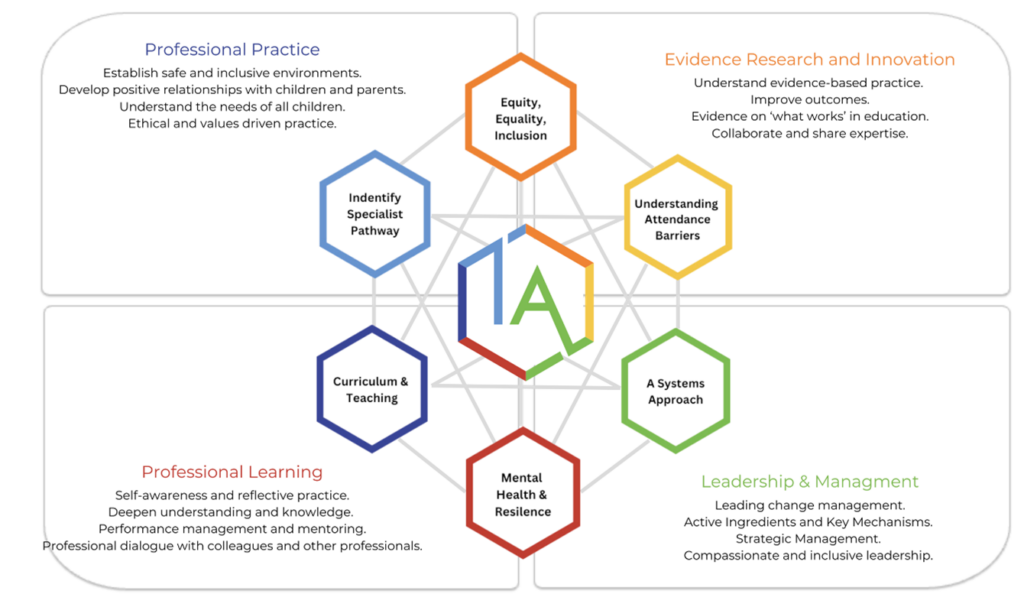‘School Success Starts with Attendance’
Absence Procedures
We expect all children to be in school each day – unless they are poorly. Children can attend school with minor ailments (toothache, headache, stomach ache, cold, sore throat etc.) as over the counter medicines can be given before school. We will always contact home if they become too ill to remain in school and please feel free to contact us to see how they are getting on during the day. Children should be off school for 48 hours if they have diarrhoea and/or vomiting. Again, please contact us if you are unsure how long your child should be absent with an illness.
As a school, we have a legal duty to know where our children are for each school day, so if your child is going to be absent, you MUST telephone the school by 8:45am to let us know. If we do not hear from you, we will call relevant contact numbers (and emergency contact numbers) to find out why your child is not in school. If we have no response, a member of staff may carry out a home visit. We would appreciate it, if a far as possible, appointments are made for outside of school times.
Punctuality
We have a very flexible arrangement for the start of the school day; our doors open at 8:30am, All children must be in school by 8:45am, for registration. If there is an unavoidable reason for your child getting to school late please telephone us to let us know. Registration is also at 12:45pm for the afternoon session. If a child arrives at school after 8:45am, they must enter school via the main entrance – and not the classroom doors.
The Importance of School Attendance
School attendance is not merely a requirement but a fundamental pillar of education. It plays a pivotal role in shaping academic success, personal growth, and future prospects, making it an indispensable aspect of your child’s education.
- Academic Achievement: Regular attendance directly correlates with academic success. Children who attend school consistently are more likely to keep up with the curriculum, perform better in exams, and improve their life outcomes.
- Knowledge Acquisition: School is where children acquire knowledge and skills that are crucial for their personal and professional growth. Missing days means missing out on valuable learning opportunities.
- Social Development: School provides a vital social environment for children and adolescents to interact with peers, develop friendships, and learn essential social skills. Consistent attendance ensures children remain connected to their peer group.
- Building Routine: School attendance establishes a structured routine in children’s lives, teaching them time management and responsibility, which are valuable life skills.
- Teacher Interaction: Regular attendance allows for meaningful teacher-child interactions. Teachers can provide personalised support, address questions, and assess individual progress more effectively when children attend regularly.
- Preventing Knowledge Gaps: Frequent absences can lead to significant knowledge gaps, making it challenging for children to catch up with missed lessons, potentially resulting in long-term academic struggles.
- School Engagement: Children who attend school regularly are more likely to engage in extracurricular activities, sports, and other enriching experiences that contribute to their overall development.
- Legal and Parental Responsibility: Parents or guardians are legally responsible for ensuring their child’s regular school attendance. Failing to do so can lead to legal consequences.
- Community Well-being: High levels of school attendance contribute to the overall well-being of communities.




Our attendance approach is fundamentally guided by the Inclusive Attendance professional development model. Comprising six tailored Learning Modules, this model empowers us to deepen our understanding by facilitating continuous professional learning for all staff.

Multi-Tiered System of Support
To guarantee a comprehensive approach to attendance, we implement a Multi-Tiered System of Support. A Multi-Tiered System of Support (MTSS) for school attendance involves three tiers of intervention, with roles for teachers, the school, children, parents, and external agencies – including the Local Authority. Data-driven decision-making and training requirements are pivotal to the implementation of the system. The system aligns with the Department for Education’s (DFE) “Working Together to Improve School Attendance” guidelines.
Tier 1 Universal Approach
Our school strategy for school attendance that benefits all of the children in school.

Tier 2 – Individualised Strategies
We tailor our attendance strategies at this tier to individual family and children’s needs and provide early help for persistent attendance challenges.

Tier 3 – Higher Need Strategy Support
Furnishing specialised support for children, young people, and families with complex attendance requirements, including access to external agency support when necessary

To view our Attendance Policy, please click here.



